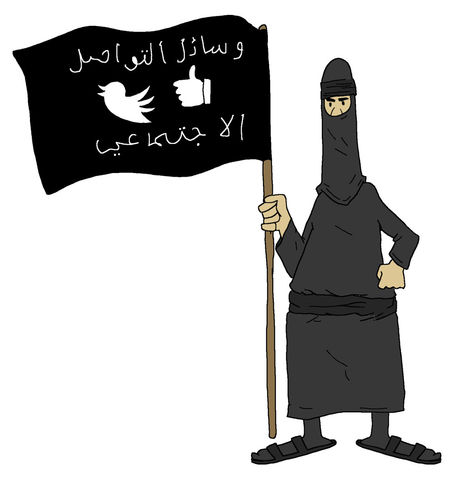We have all been a part of or at least witnessed the new social media trend of hashtag activism. With recent atrocities such as school shootings, police brutality and terrorist attacks unfortunately becoming somewhat of a weekly occurrence, the rates at which individuals take to social media to enhance their public speaking skills through 140 characters has undoubtedly increased.
At some point, we must ask ourselves what effect liking, commenting and sharing has in the larger scheme of things. Awareness is important, but it is only the first part of the journey towards fixing, overcoming or changing anything within our society. Social media makes it easy for individuals to feel like they are making a difference with the click of a button. Condemning the actions of a government, person or institution is simple when the work only goes as far as pressing “post” or “share.” However, asking someone to send a letter to a state representative, attend or organize a public protest, or address community issues with honest communication and integrity takes a bit more work. Social media encourages and allows us to be lazy, all under the pretense of supposed beneficial global activism.
Many times, companies and corporations like Facebook and Twitter, which encourage this type of traffic, are simply trying to overcompensate for the fact that their sites are the basis of many terrorist recruitment and organizational strategies. It was in Mark Zuckerberg’s best interest to create flag backdrops and “safety checks” for people to let their loved ones know they were okay during the Paris terrorist attacks months ago, but there was no traction for the tragedies in Lebanon and Iraq that took place at the same time.
These same corporations were also asked to meet with the White House staff and other security enforcement officials to discuss terrorist recruitment on their sites. ISIS has been particularly active on Twitter, sharing various violent videos and connecting with others who share their goal of inflicting pain and horror on society. When the same sites willingly give the opportunity for individuals to use the site as a platform to speak out against contemporary issues without simultaneously encouraging them to get out and do more than share or like, all of society comes to a standstill. We have come to a sort of limbo where pats on the back are given for activism online and outside actions are not publicized as much.
In addition, most news stories nowadays are most frequently shared on sites like Facebook and Twitter, so when we are getting our main source of news from the posts shared by our friends on these sites, our view of the world and reality will soon constrict to the biases of our peers. To truly do anything or combat any terrorist group or agency, we need to step away from the virtual war — a war that can cause harm to the world and easily create groups filled with hatred but can not adequately eliminate them in the real world.


